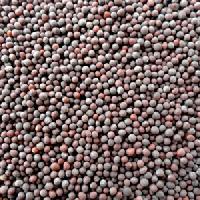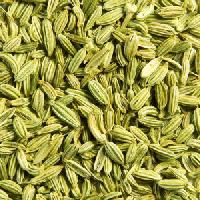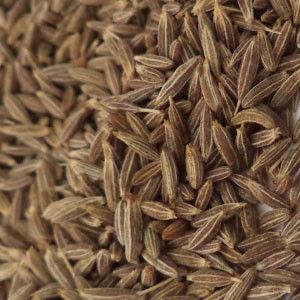
Mustard Seeds
We are offering mustard seeds. Mustard poultices were (and still are) used to relieve the congestion resulting from a cold and cough. Got a stiff back or sore aching muscles? soak yourself in a warm bath to which mustard powder has been added! you know how jam, pickle, spice jars smell of the stuff that was in them even after being washed? get rid of this smell by putting some mustard paste in the jar and filling with warm water. Shake well and pour out. Now wash the jar again and the smell will be gone! mustard seeds are from the mustard plant, which belongs to the cruciferous plant family. Other vegetables belonging to this family are cauliflower, broccoli, brussels sprouts and cabbage. Though small, the mustard seed is famous. It is referred to in christian teachings, islam, hinduism and buddhism! sanskrit writings from 5000 years ago mention mustard seeds! mustard seeds were used medicinally in history and today we know them to be a great source of omega-3 fatty acids, iron, calcium, zinc, manganese and magnesium. Some research suggests they contain compounds that help fight cancer!
...more
Isabgol Seeds
We are offering isabgol seeds. Psyllium, also referred to as ispaghula (or isphagula), is derived from the husks of the seeds of plantago ovata. Psyllium contains a high level of soluble dietary fiber, and is the chief ingredient in many commonly used bulk laxatives, including products such as metamucil® and serutan®. Psyllium has been studied as a “non-systemic” cholesterol-lowering agent, with generally modest effects seen on total cholesterol and low-density lipoprotein levels. Several psyllium-containing cereals such as heartwise® and bran buds® have appeared in the u.s. Marketplace during the last 15 years and have been touted for their potential lipid-lowering and “heart health promoting” effects. Allergic reactions, including anaphylaxis, have been reported, particularly in healthcare workers with previous experience preparing psyllium-containing bulk laxatives. Obstruction of the gastrointestinal tract by such laxatives has also been reported, particularly in patients with prior bowel surgeries or anatomic abnormalities, or when mixed with inadequate amounts of water.
...more
Flex seeds
Controls cholesterol: rich in soluble and insoluble fiber, flax seed helps in reducing cholesterol levels. It reduces bad cholesterol and increases good cholesterol content. Including flax seeds in your diet can help in reducing the risk of cardiovascular issues. It is also effective in proper functioning of the intestines. Flax seeds can prevent and also treat certain type of cancers. Promotes fertility: one of the best sources of lignans, which can balance female hormones, flax seeds can promote fertility and reduce pre-menopausal symptoms. Improves blood sugar: daily intake of flax seeds improves the blood sugar of people suffering from diabetes. Fights prostate cancer: according to a study, flax seed has the ability to assist in the fight against prostate cancer. Another study indicates that flax seed is likely to disrupt the events leading to cancerous cell production. Relieves constipation: flax seed and flax seed oil act as natural laxatives and give you relief from constipation without having any harmful side effects. Improves immunity: a rich source of omega-3 and omega-6 fatty acids, flax seeds protect your body from bacteria and viruses, improving your system’s immunity. Reduces inflammation: due to their anti-inflammatory properties, flax seeds help in preventing asthma.
...more
Fennel Seeds
Fennel seeds is used for various digestive problems including heartburn, intestinal gas,bloating, loss of appetite, and colic in infants. It is also used for upper respiratory tract infections, coughs, bronchitis, cholera, backache, bedwetting, and visual problems. Some women use fennel for promoting menstruation, easing the birthing process. Fennel powder is used as a poultice for snakebites. In foods and beverages, fennel oil is used as a flavoring agent.
...more
Cumin Seed
Cumin seeds and cumin seeds powder should be kept in tightly-sealed glass containers in a cool, dark and dry place. Ground cumin will keep fresh for about six months, while the whole seeds will stay fresh for about one year. This ancient spice is popular in the cuisines of india, mexico, north africa, western china and the middle east. It is a rich source of iron and hence very beneficial for anaemics as well as lactating mothers and pregnant women, who tend to need iron more than others. - it is a great aid in digestion and prevents indigestion, flatulence, diarrhoea, nausea and morning sickness. - for immediate relief from acidity, chew a pinch-full of raw cumin seeds. - cumin seeds have antiseptic properties and aid in curing common colds. - it doesn’t let cough to form and collect in the respiratory system. Since it is supposed to be hot, it dries up all the mucous. - it would be beneficial to sip on a concoction of cumin seeds and water. Boil a handful of cumin seeds along with water. Drinking this water wards off common colds and keeps the digestive system on track. Many south-indian households drink only ‘jeera-pani’ instead of sipping on plain boiled water. - cumin seeds help in stimulating the secretion of enzymes in the pancreas which in turn help in the absorption of nutrients. - cumin seeds also boost the power of the liver to flush out toxins from the body.
...more
Flax Seed

jeera seeds

Psyllium Seed

Cummin Seed

flex seed
Be first to Rate
Rate ThisOpening Hours